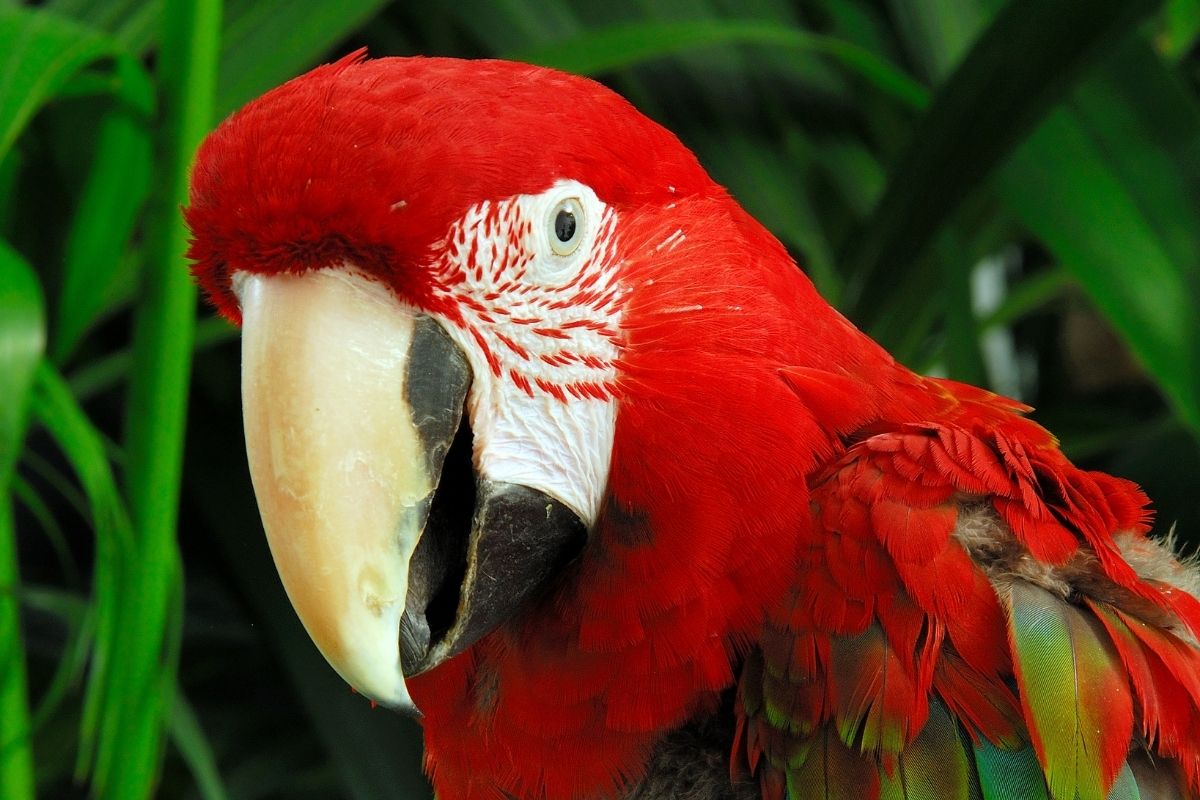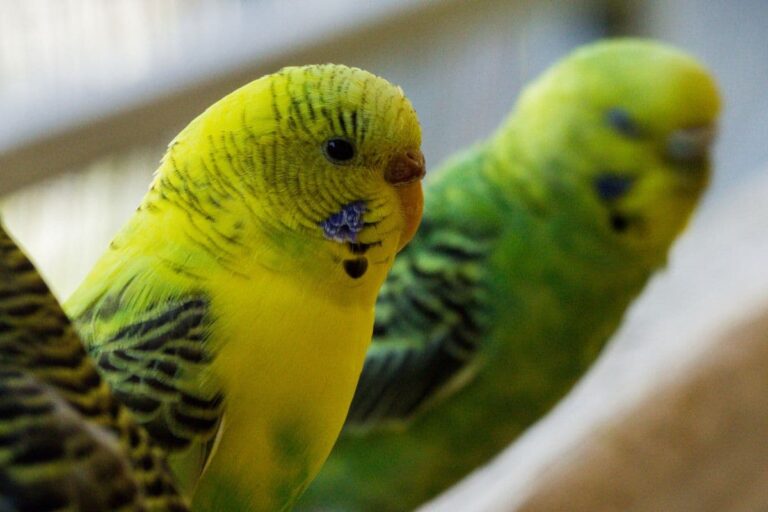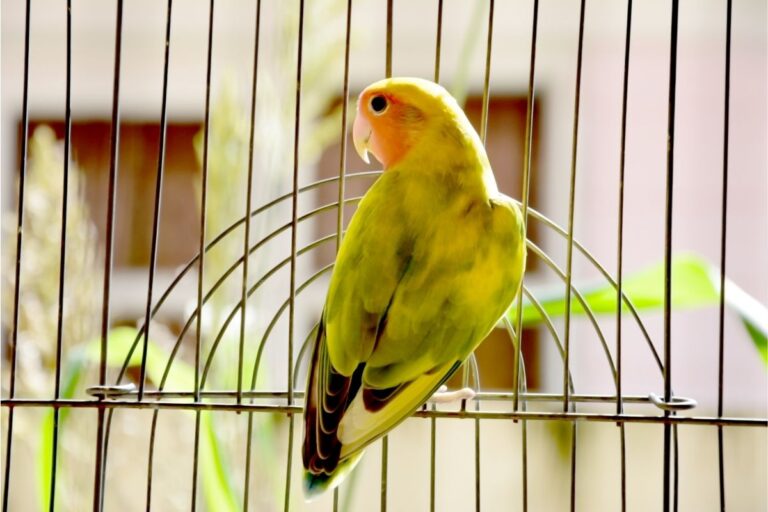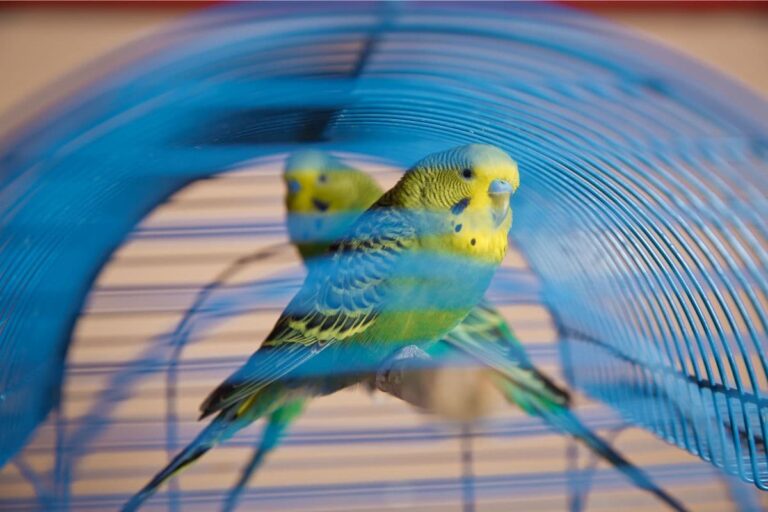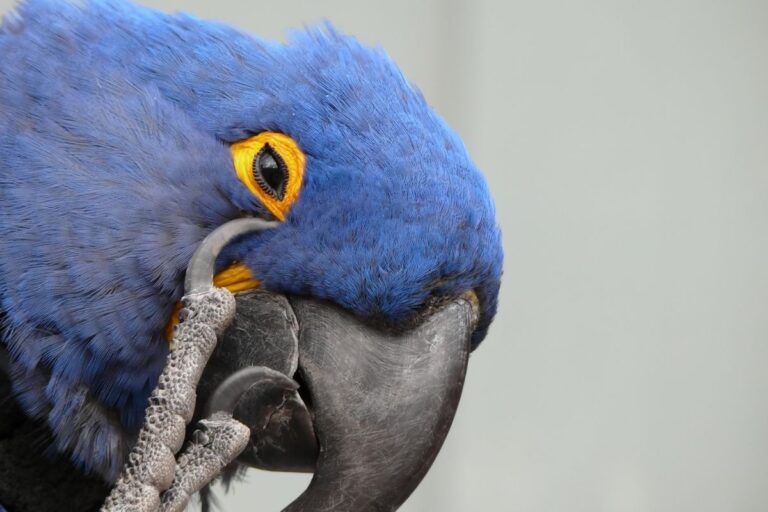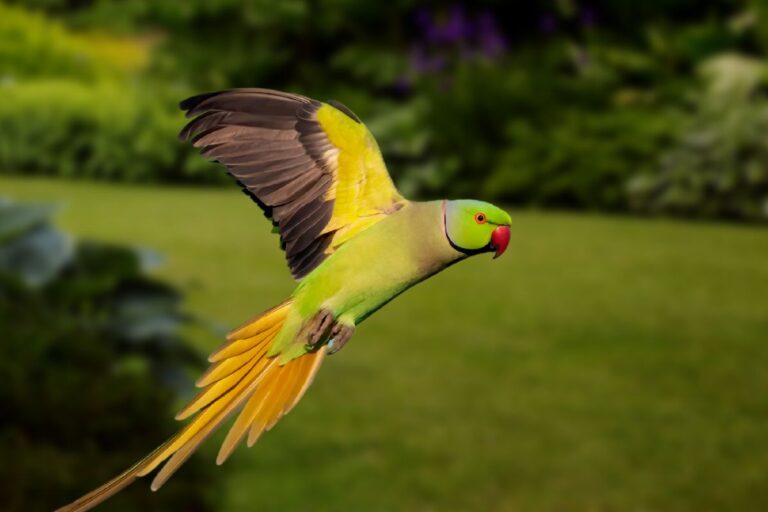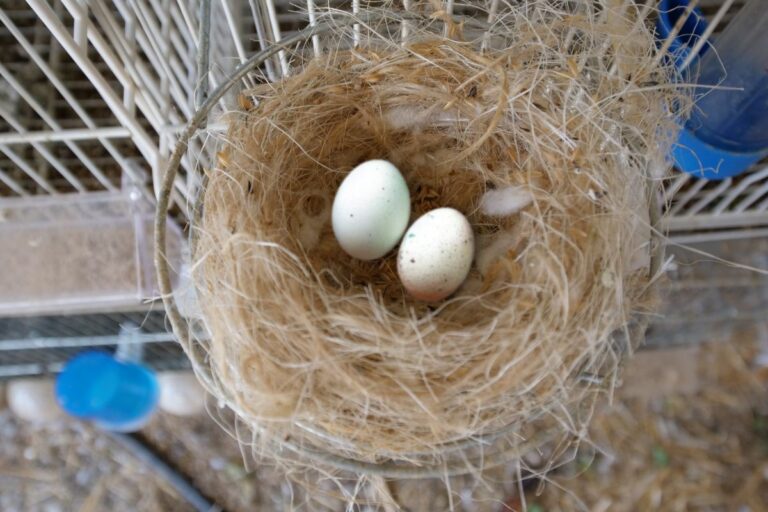Why Do Parrots Live So Long
Disclosure: The opinions expressed in this post are my own. This post may also contain affiliate links, which means that I will receive a commission if you decide to purchase through my links, at no additional cost to you. As an Amazon Associate, I earn from qualifying purchases.
Parrots are well known for being smart and social birds. They make great pets since they are highly intelligent and learn quickly. They also happen to be among the longest living species on Earth.
Have you ever wondered why do parrots live so long? And why do they live for that long as compared to many other species of birds? Read on to find out more!
What is the Lifespan of a Pet Parrot
The average lifespan of a pet parrot in captivity is about 20 years or more. This number varies significantly depending on the breed of the parrot. As a general rule of thumb, parrot breeds that are bigger in size tend to have a longer lifespan. It is even possible for some parrots to live up to 75 years old or more!
Larger parrots such as African Greys and Macaws are famously known to live up to 50 or more years. With that being said, owning a parrot is often a lifetime dedication.
Here is a list of different parrot species and their typical lifespan when kept in captivity.
| Type of Bird | Approximate Lifespan in Captivity |
| African Greys | 40 – 60 years |
| Macaws | 40 – 50 years |
| Cockatoos | 40 – 60 years |
| Cockatiels | 15 – 25 years |
| Conures | 15 – 30 years |
| Budgies / Parakeets | 5 – 8 years |
Lifespan of Parrots in Captivity vs Parrots in the Wild
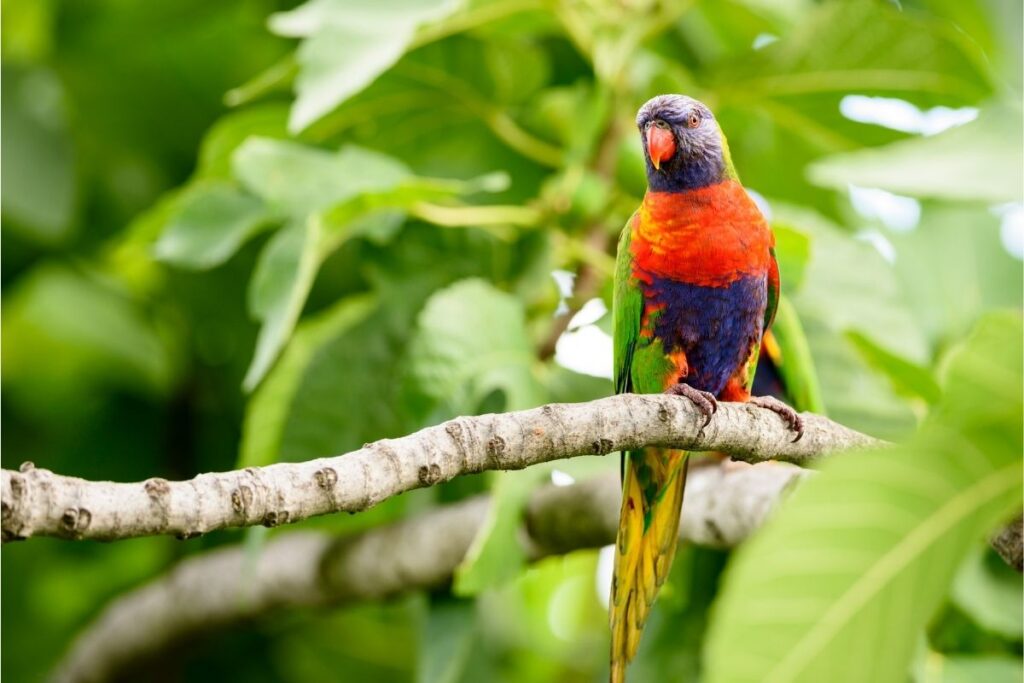
While parrots are often thought of as pets, they are actually wild animals that live in tropical climates. In fact, parrots are the only birds that spend their entire lives outside of the nest.
Birds, similar to other animals, usually tend to have a shorter life expectancy in the wild as compared to being cared for in captivity. This is because they are constantly exposed to threats in the wild, such as predators, unpredictable weather, availability of food and lack of care when they fall ill.
In captivity, birds are known to live longer if they have been subjected to the proper care and living conditions. With proper diet, shelter and socialization, birds are less prone to falling ill, starving, feeling stressed and getting injured. However, with improper care and handling, birds can be exposed to long-term stress and depression which can lead to their lifespan being reduced.
Here is the table of the approximate lifespan of several types of parrots in the wild. Note that birds with larger body size tend to have a longer lifespan too.
| Type of Bird | Approximate Lifespan in the Wild |
| African Greys | 23 years |
| Macaws | 30 years |
| Cockatoos | 30 years |
| Cockatiels | 12 years |
| Conures | 12 years |
| Budgies / Parakeets | 5 years |
Why Do Parrots Live so Long
Parrot longevity is a result of a mechanism that was developed to counter the effects of aging due to their high metabolic rate, by reducing oxidative stress on their body. Hence, it is almost difficult to tell the age of a parrot once they have reached adulthood.
A bird’s diet typically includes seeds, fruits, nuts, vegetables, insects, fish, meat, eggs, milk, honey, and grains. Since seeds often difficult to digest than other kinds of food, birds naturally will have a higher metabolism needed to digest their food, which elevates their body temperature and blood sugar levels.
Since higher metabolism tends to speed up aging, birds have evolved a mechanism over time to manage and counter against the aging process. Ultimately, this gives them an edge in life expectancy over many other animals of similar sizes.
Do Other Birds Live as Long as Parrots
Birds typically have a long lifespan when compared to other animals in our kingdom. However, parrots tend to have longer lifespans than other bird species. Here is why.
Bigger Size
According to biologist Speakman JR, bigger animals usually live longer. Compared to many other bird species, parrots are bigger in size to most of them. So naturally, due to their body size, parrots will tend to live longer than many other birds.
Intelligence
The intelligence level of parrots has also contributed to their longevity. According to scientists, intelligent creatures tend to live longer than those who aren’t very smart. The reason behind this phenomenon is not fully understood yet but some believe that it could be related to how well these individuals adapt to changes around them and how they are able to outsmart their other animal competition.
Social Life
Another factor contributing to parrots’ longevity is their ability to form strong bonds amongst themselves and with humans. These relationships help parrots stay healthy and happy throughout their lifetime.
Captivity
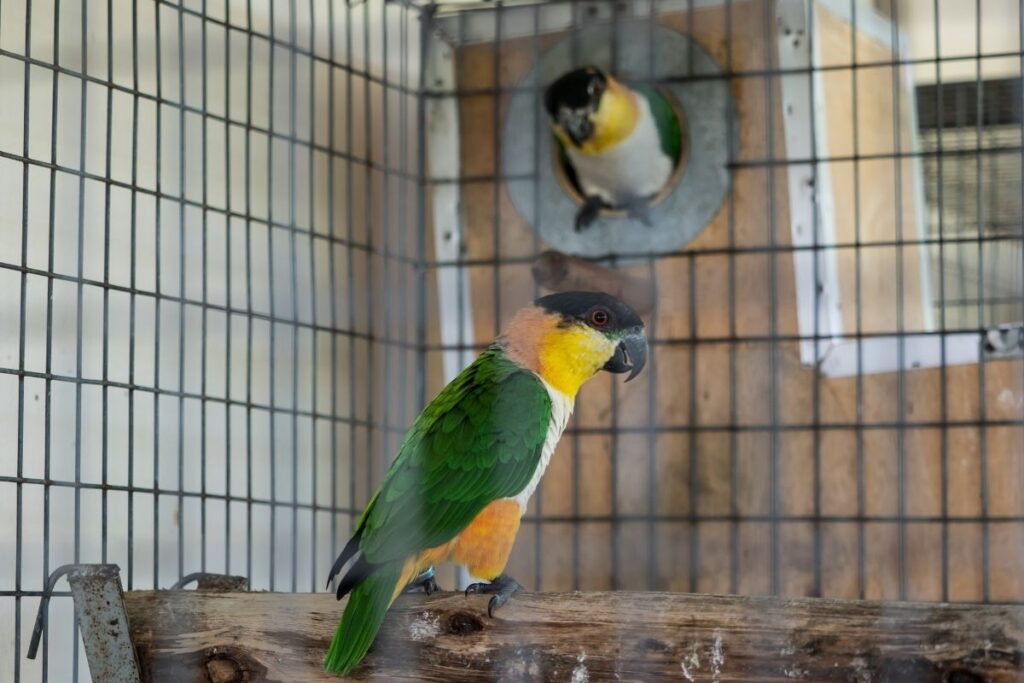
Since parrots are tend to be kept in captivity, we often view parrots as pets rather than wild birds. As explained earlier in this article, animals that are kept in captivity tend to liver longer due to many reasons such as predators and stress. This perception also makes us feel as if parrots live longer than other birds.
Why Could Cause Parrots to Die Early
Although parrots fairly long lifespan, they could die prematurely for many reasons, just like any other living beings. Here are some common reasons would die early.
Accidents
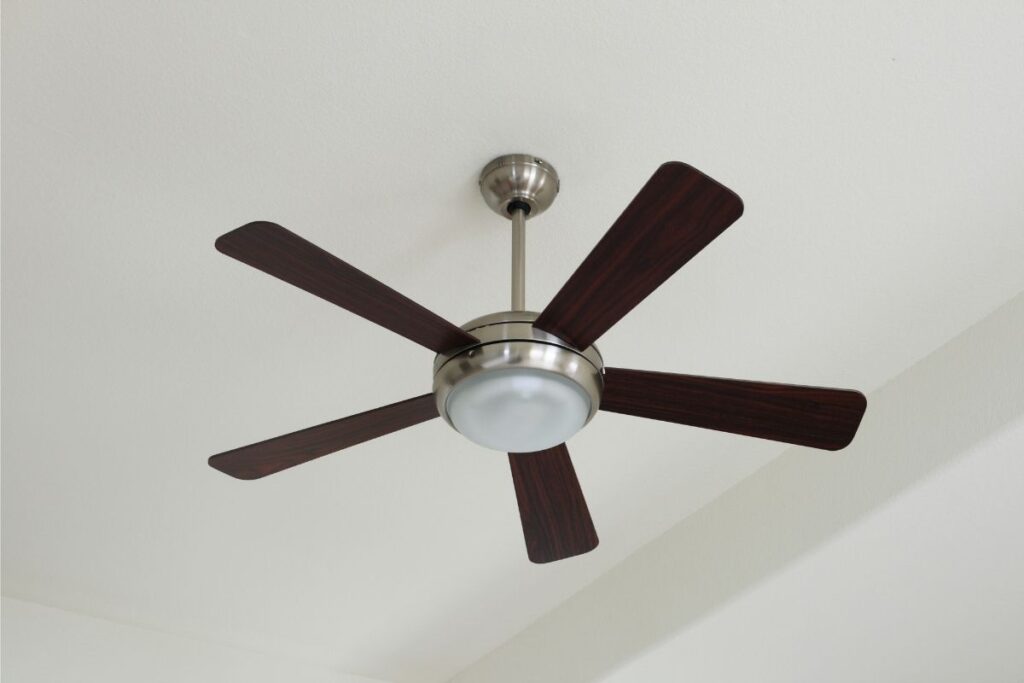
Parrots are social birds, but they are fairly mellow in nature. However accidents can and do happen, especially if there’s a lack of proper bird-safe measures.
Fractures to bones, traumas, internal injuries and damage to digestive tracts from chewing on hazardous items are things that could happen to your pet parrot if safety is not taken seriously. Here are some hazardous items to take note of in a space with parrots:
- Ceiling and standing fans
- Electrical cords
- Other pets
- Sharp objects
- Small objects
Poor Diet
Make sure to feed a balanced diet to your parrots and pet birds. This ensures that they receive the right amount of vitamins and minerals to stay nourished and healthy. We know that parrots love eating seeds, but their diet should include more than that, such as:
- Fruits
- Nuts
- Vegetables
- Flowers
- Grains
Food Poisoning
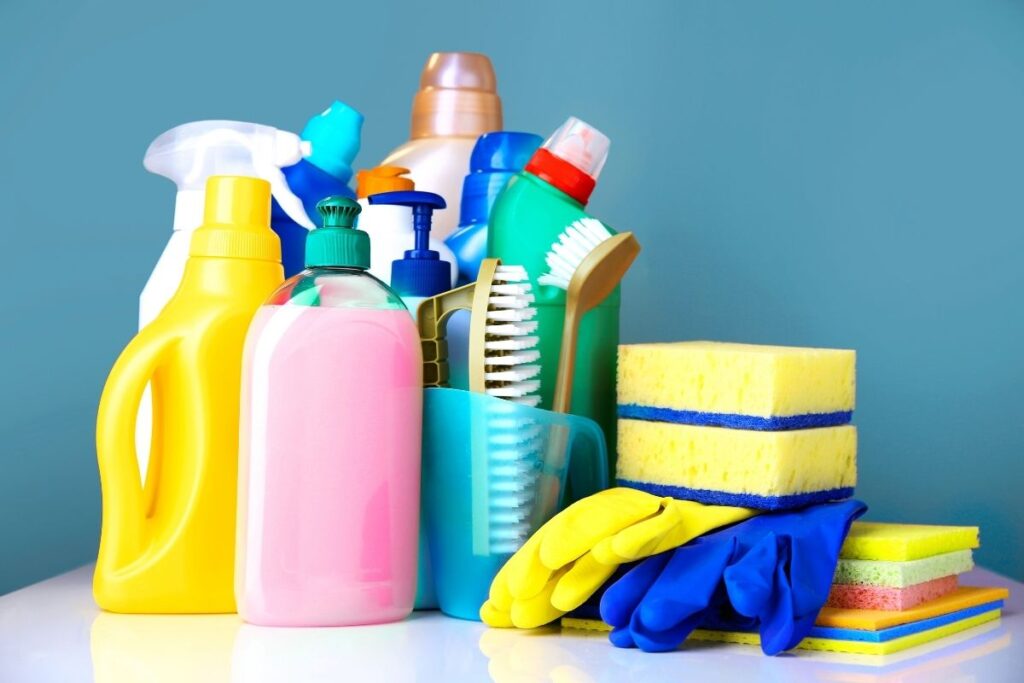
Never try to experiment different kinds of food for your parrot. Their digestive system and metabolism may not be able to handle toxic substances well. Make sure you understand their diet and only feed them the right food. The intake of unknown foods can lead to your parrot feeling ill or may even be fatal for them.
Also, ensure that your birds are not able to access toxic household chemicals and items around your house, such as:
- Cleaning solutions
- Bleach
- Beauty products
- Paint
- Perfume
- Moth balls
- Air fresheners
- Cigarettes and cigarette buds
- Toxic plants
Diseases
Parrots are also prone to falling sick just like any other animal. Some common diseases found in birds include:
- Pacheco disease
- Psittacosis disease
- Tumours
- Polyomavirus
- Other parasitic, fungal, viral and bacterial diseases
It’s important to understand and know how to identify the symptoms of these diseases and bring them to a vet to get them treated as soon as the signs show.
Appliances with Non-Stick / PTFE / Teflon Coating
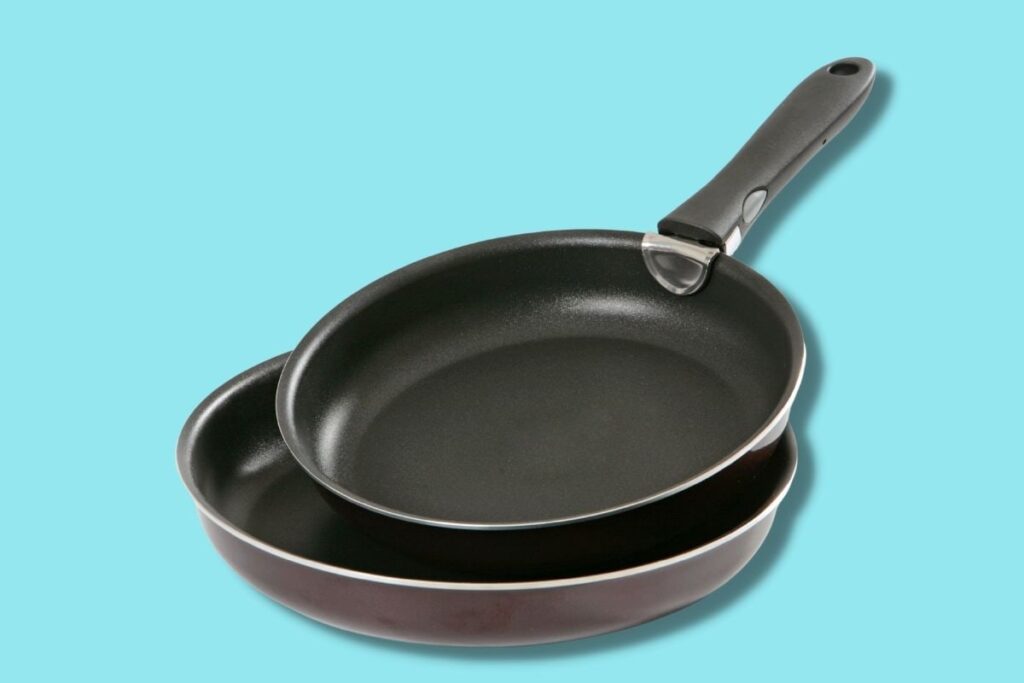
PTFE / Teflon coating has been used by manufacturers since the 1970s to prevent sticking when cooking with nonstick pans. Since then it has become common to find them across all types of cookware including air fryers, woks, skillets, frying pans, griddles, sauté pans, etc. Other household appliances such as clothing irons, ironing boards and ironing board covers may also have PTFE coating on them.
It’s crucial that parrots and other birds are not exposed to the fumes created by PTFE / Teflon when they are heated up. In fact, if you keep birds at home, try not to have items around that have PTFE coating on them.
To learn more about the harmful effect of what the fumes of PTFE coatings can do to birds, read my blog post on “Are Air Fryers Bad for Birds“.
Stress
There are many factors that can lead to stress in birds. Common examples are:
- Lack of socialization
- Lack of living space
- Hunger
- Living in poor conditions (air quality, noise pollution, etc)
Self destructive behavior can easily be observed in birds that are feeling stressed. Some behaviors include feather picking and self-mutilation. These actions directly cause harm to themselves. Prolonged periods of stress may also result in depression in parrots. All these ultimately lead to a decreased life expectancy.
It is important to keep your parrots healthy by providing them a comfortable space, and dedicating time every day to socialize with them.
Mirrors
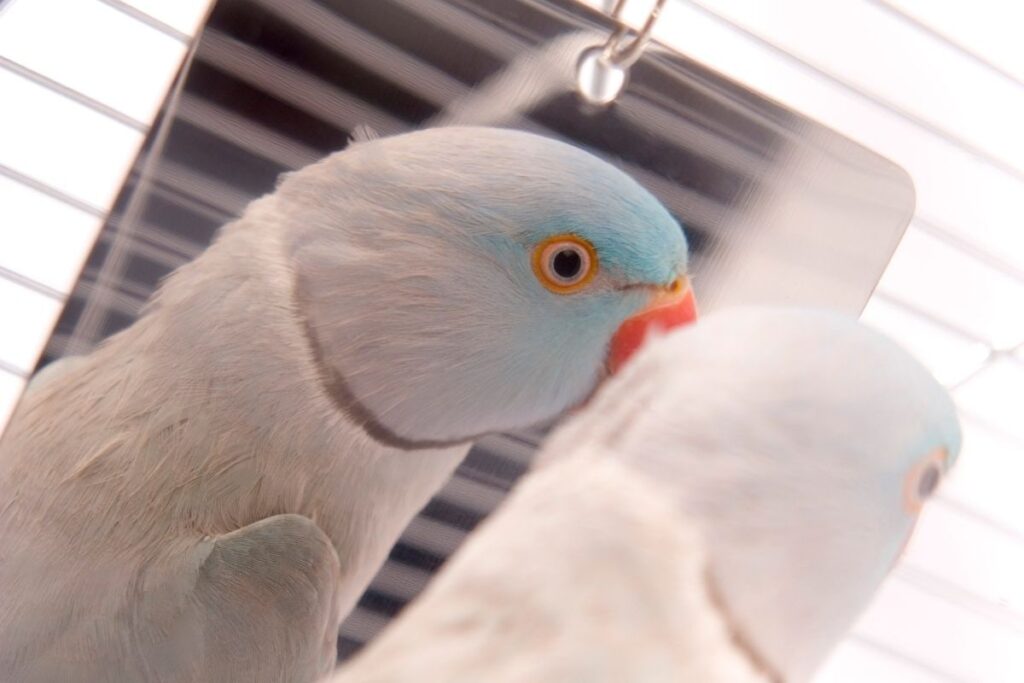
Although it may be fun to see the reactions of your parrots when they are placed by a mirror, it is something that you do not want to be doing all the time. You should also never place a mirror by their cage. This topic may be debatable as some budgie owners place mirrors in cages to provide their budgies a form of entertainment. However, I believe that this causes more damage than good in the long run.
Birds in general have very good vision, and they may not be able to differentiate between another bird and their reflection. This could create a false sense of perception which may lead to socialization issues down the road. Your parrot may also become aggressive towards its own reflection which may result in safety concerns when they try to attack the mirror.
Night Frights and Panicking
Some birds are known to be scared of the dark, especially cockatiels and budgies. Night frights are a common cause of sudden deaths in birds. As the bird gets startled and starts to panic in the middle of the night, it starts to flap its wings in a state of panic to try to escape, especially if they are not able to see anything. While doing so, the cage structure may cause physical trauma and internal injuries to the bird.
Having a night light near your bird’s cage can help to reduce night frights, as the bird is not completely in the dark when this happens.
How Can You Help Your Parrot Live Longer in Captivity
If you want your pet bird to live for more years, then there are several things you need to know about its lifestyle.
Regular Exercise & Stimulation
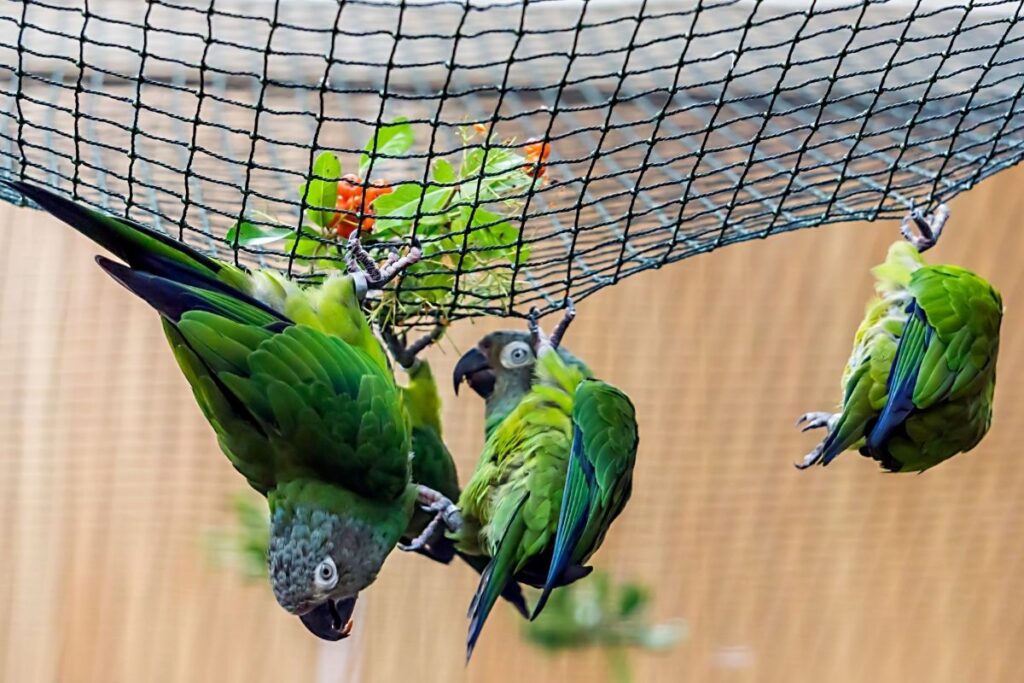
First off, make sure that your bird gets enough exercise. Exercise helps keep your bird fit and active. Avoiding a sedentary lifestyle keeps him/her from becoming overweight or obese. If your bird does get too fat, could start having health problems and heart disease, such as atherosclerosis which are more susceptible to macaws, Amazon parrots and African Greys.
Balanced Diet
Next, feed your bird properly avoid giving it a high-fat diet. Make sure that he/she eats nutritious foods like fresh fruit, veggies, legumes, grains and nuts. Avoid feeding processed food products such as crackers, chips, cookies, and candy. Also avoid giving treats at random times throughout the day. Instead, give out small amounts of treats now and then.
Feeding Schedule
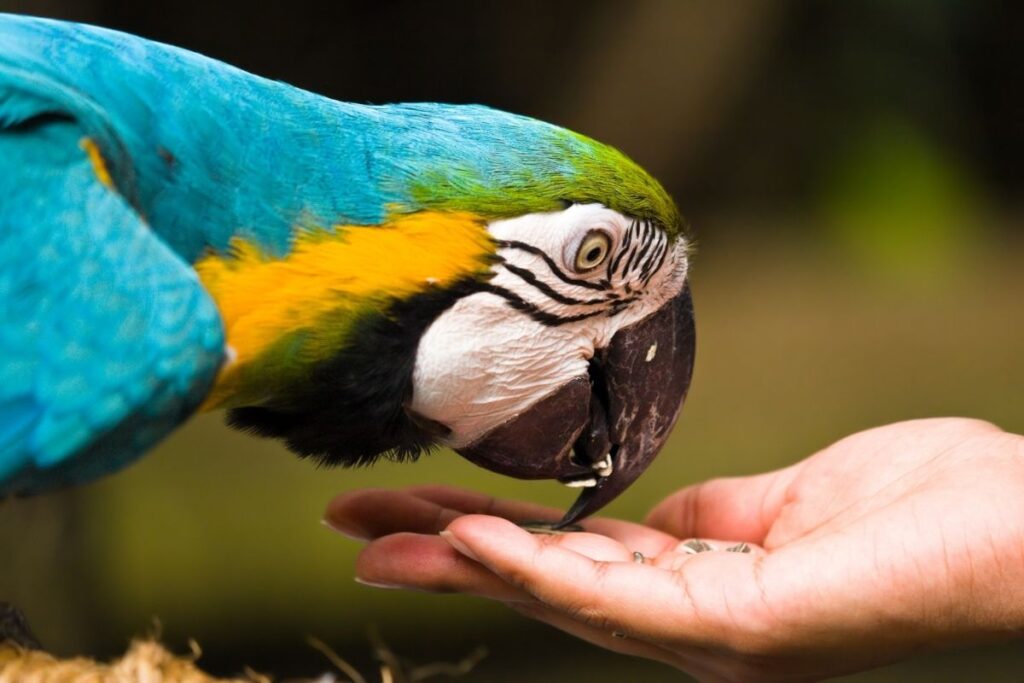
Parrots require different amounts of food depending on how much energy they use each day. A parrot needs around a quarter to half cup of pallets daily. The amount of calories needed depends on age, sex, activity level, environment, diet, and other factors. Feeding your pet parrot at a consistent timing twice a day is a good guide.
Socialization
Finally, make sure that your parrot has plenty of opportunities to interact socially with birds or at least with humans. Social interaction will improve his mental health and overall well being. It will also allow them to learn new behaviors and develop skills.
These three simple steps will ensure that your parrot lives longer in captivity!
Do Parrots Usually Outlive Their Owners
Depending on their age difference, it is very possible for a healthy parrot to outlive its owner. Since parrots are able to live up to 50 years or more, even a middle-aged adult who recently picked up a young parrot may not be able to live long enough to witness the full life of their parrot.
However, most owners would still love to have an old friend by their side as a companion until their time arrives.
Do Parrots Get Depressed When Their Owners Die
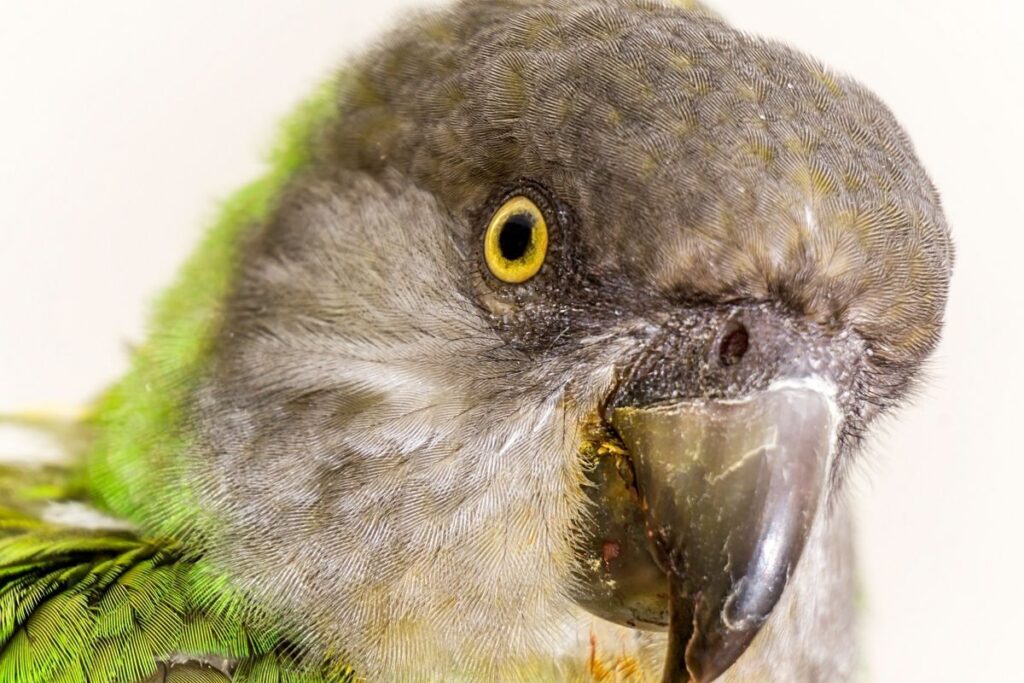
The bond between a parrot and its owner can be really strong and goes both ways, especially after a long period of time. Many owners treat their pet parrot as part of their family. Owners will often grief the loss of their parrots.
Parrots likewise will grief the loss of their owner and exhibit signs of depression. However, if placed under proper care, it’s likely that they will recover from it. This is why you should consider including for their care in your will if possible.
Having other familiar faces around after the owner is gone will also help the parrot feel less lonely. Therefore it is good to socialize your feathered friend often and have them get used to being around and handled by your family and friends when you are still able to do so.
Takeaway
If you want to enjoy the company of a beloved parrot for decades to come, these tips will surely help. Remember though that there are no guarantees that everything will pan out the way you planned. But having said that, we hope this article helps you plan ahead for the future of your parrot and look forward to having a lifelong friendship with your parrot!



